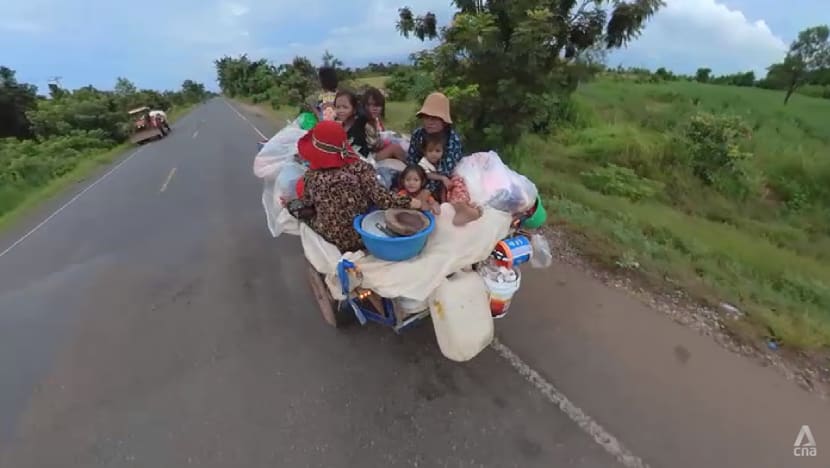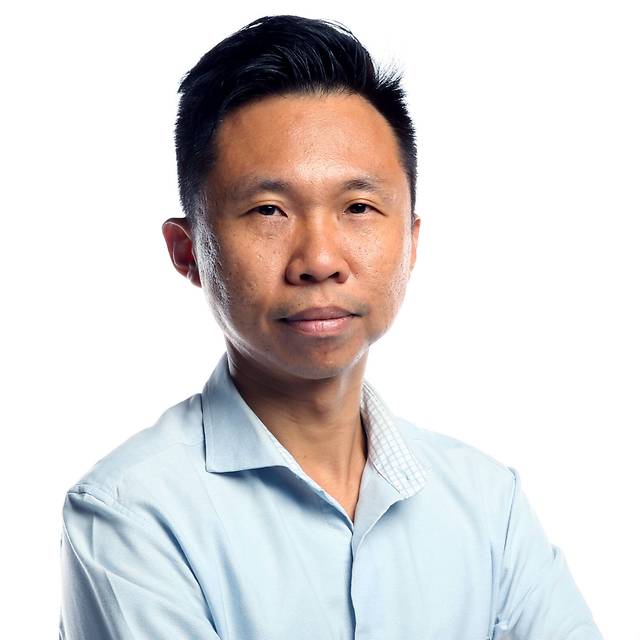Border residents return home as fragile Cambodia-Thailand peace holds
Some Cambodian families are cautiously returning after weeks of clashes along the Thailand border, but uncertainty remains.

A family of eight stacked up on their tractor alongside their belongings, returning from relief camp to their home.

This audio is generated by an AI tool.
SIEM REAP, Cambodia: Weary Cambodian residents are cautiously returning home to rebuild their lives, as a fragile peace settles along the Cambodia-Thailand border.
The calm follows the Jul 28 ceasefire, which brought an end to weeks of violent clashes.
Yet troops on both sides remain on high alert, as observers warned the truce could unravel at any moment.
For Cambodian Moa Rim, who lives near the border with her family, the past month living in a relief camp has not been easy.
“Our tents were lined up next to one another,” she recalled. “When it rained, water flowed everywhere. It was so wet. We could only sleep when it was not raining.”
CLEARING HIDDEN DANGERS
But before more families can return home safely, unexploded ordnance must first be cleared.
The Cambodian Mine Action Centre (CMAC) is tapping its 12,000 volunteers across the country.
They are trained to spot potential risks and can relay information directly to CMAC, speeding up responses to protect communities.
CMAC estimates it will take about two months to clear unexploded bombs from areas near villages. However, combing through larger areas like farm fields could take years.
CMAC director-general Heng Ratana said priority would go to the landless poor, people with disabilities, and other vulnerable groups.
“(We want to) make sure they can, with the rainy season, grow rice, corn and so on,” he added.
“I hope that we can reduce the impact (of their suffering).”
Even for those who have managed to return home, new obstacles remain.
Cambodia has accused Thailand of erecting barbed wire on its soil.
Thailand, however, insists the barriers are on its own territory, saying they are meant to stop Cambodian soldiers from planting new landmines.
Cambodian authorities have provided stranded villagers with temporary shelters, along with access to food and healthcare.
“We guarantee that they will have sufficient daily food supplies,” said Banteay Meanchey province governor Oum Reatrey.
“There is rice, canned fish, fish sauce, noodle and other supplementary food available for them."
NEXT STEPS FORWARD
Meanwhile, booths have been set up to help returning Cambodian workers access skills training or find jobs within the country.
Around eight in 10 workers have applied, though only about 15 per cent have successfully secured opportunities so far.
Active fighting between Thailand and Cambodia has ceased since the Jul 28 ceasefire.
Both sides have agreed to the formation of a temporary body known as the Interim Observer Team.
Comprising defence attaches from the Association of Southeast Asian Nations (ASEAN) and led by Malaysia, the regional bloc’s current chair, the team’s role is to ensure the ceasefire is adhered to.
The move is seen as a first step toward establishing a formal and permanent mechanism that would enable ASEAN to play a greater role in promoting peace between the two countries.

















